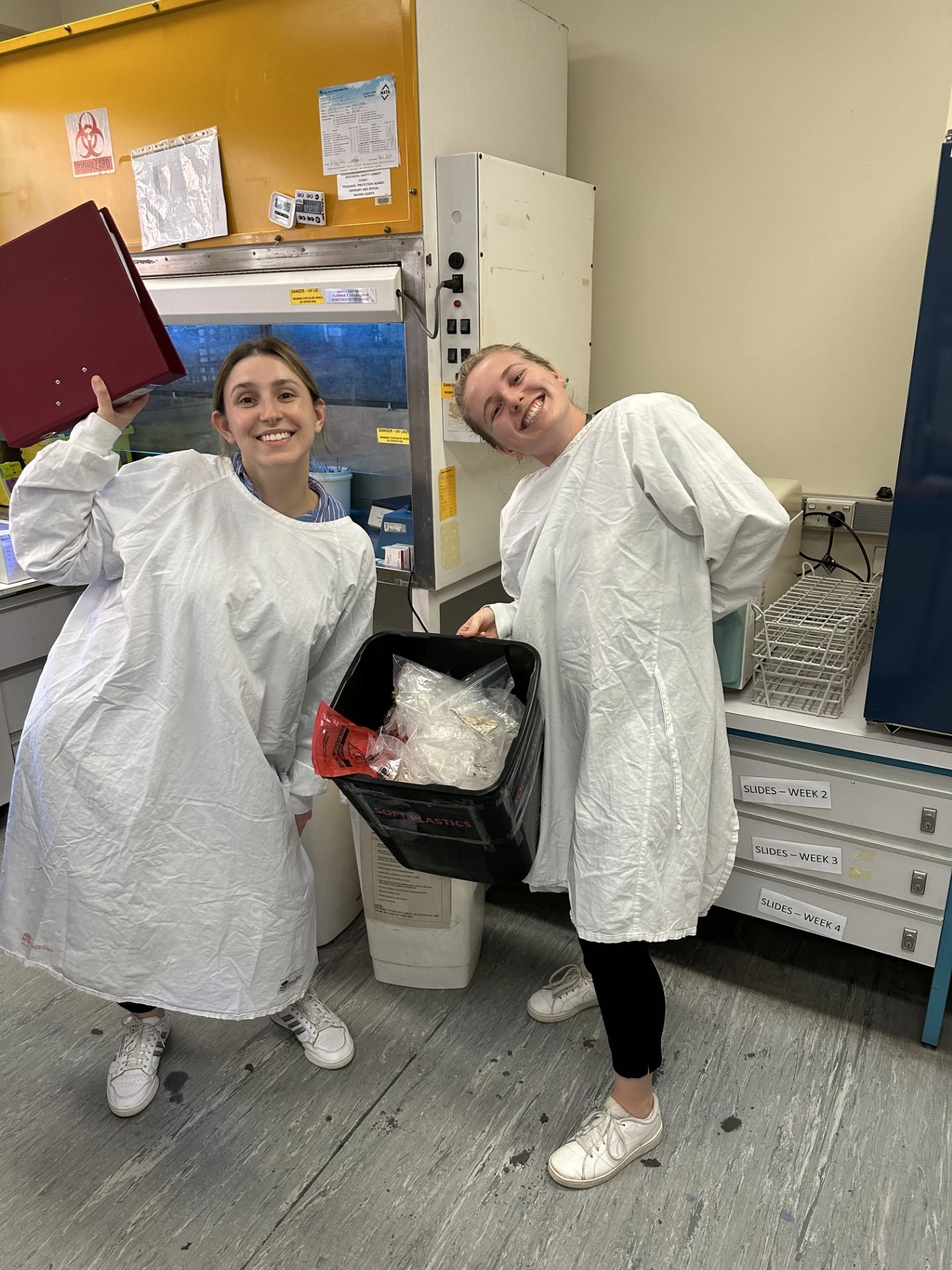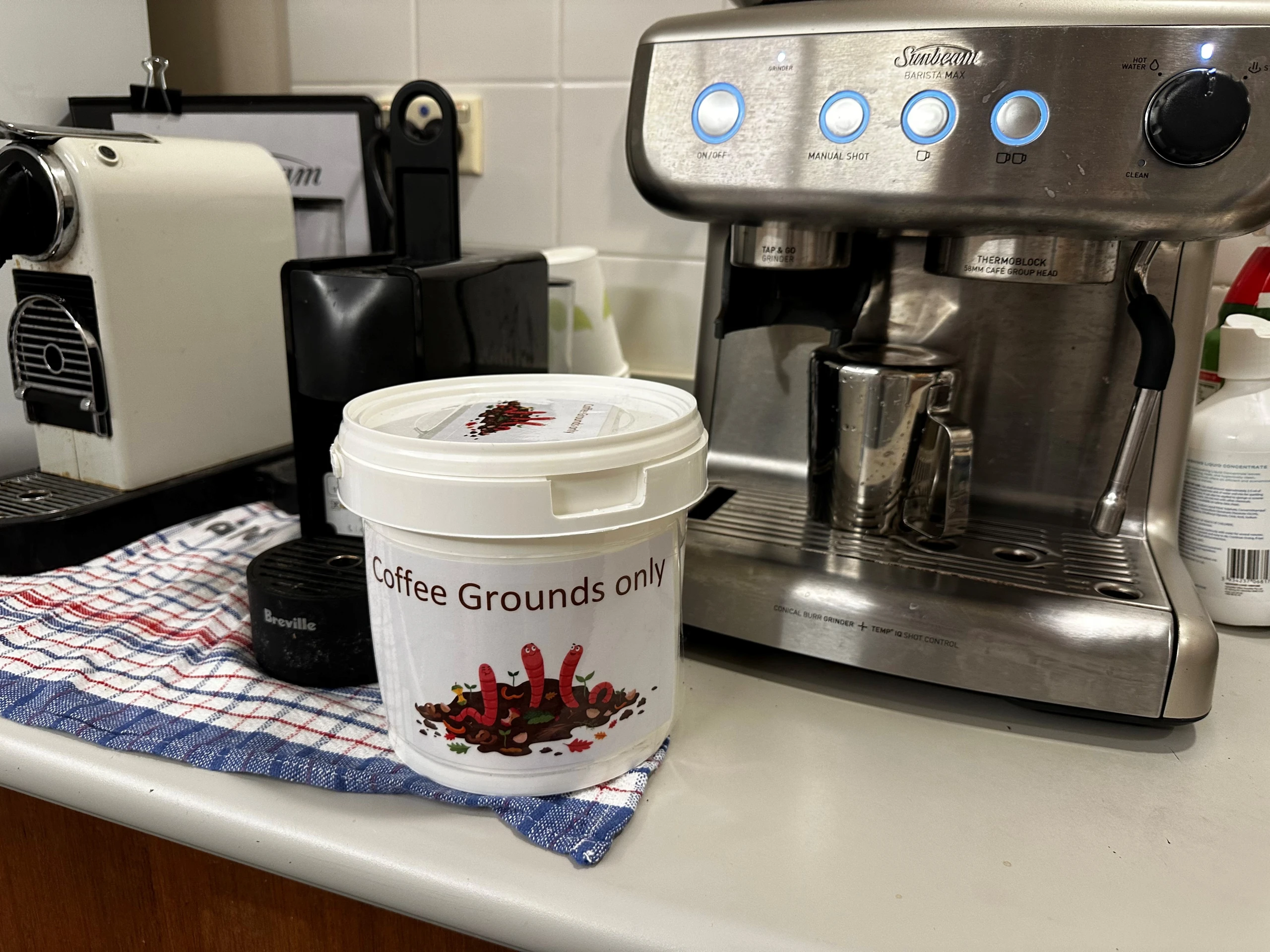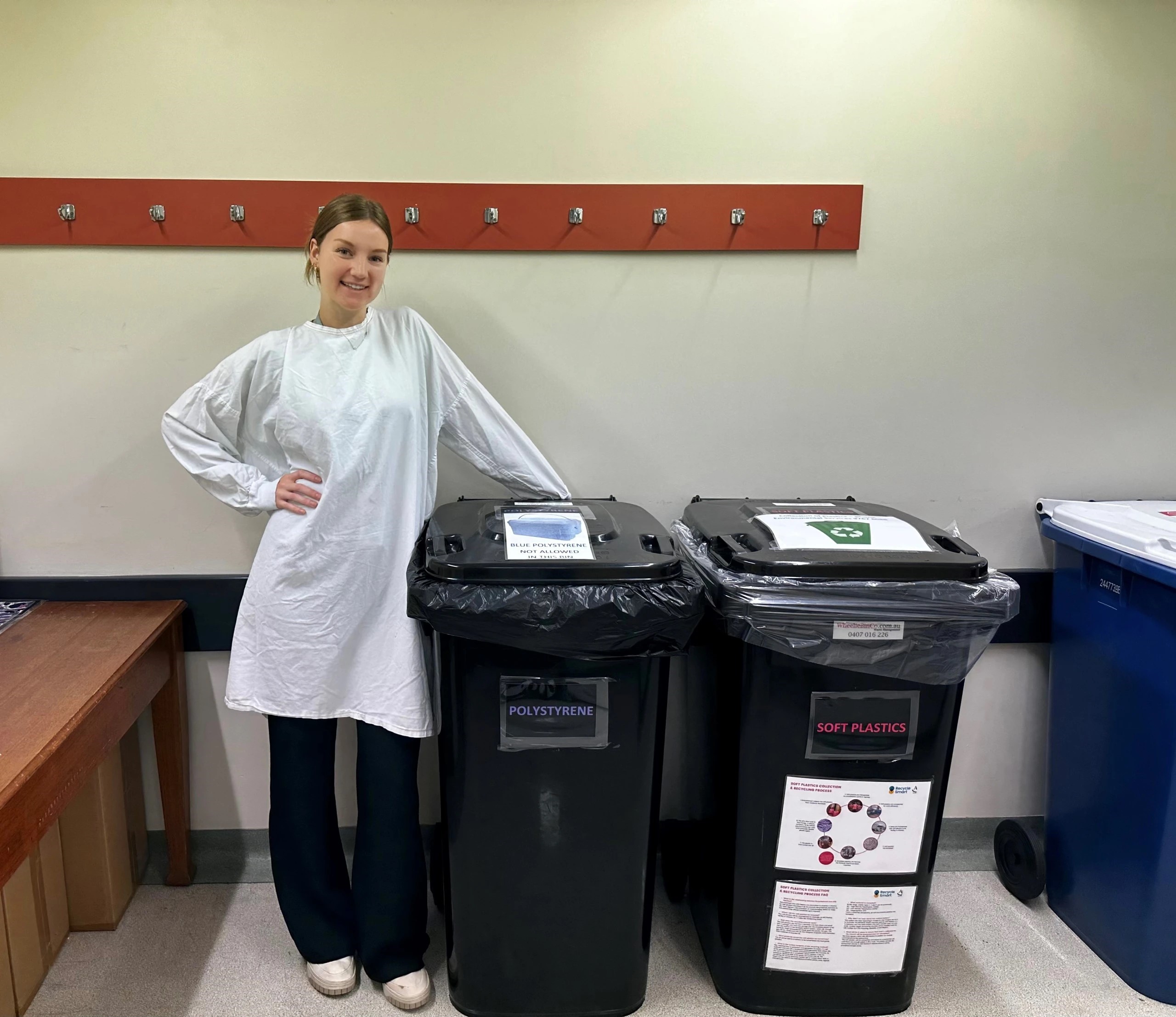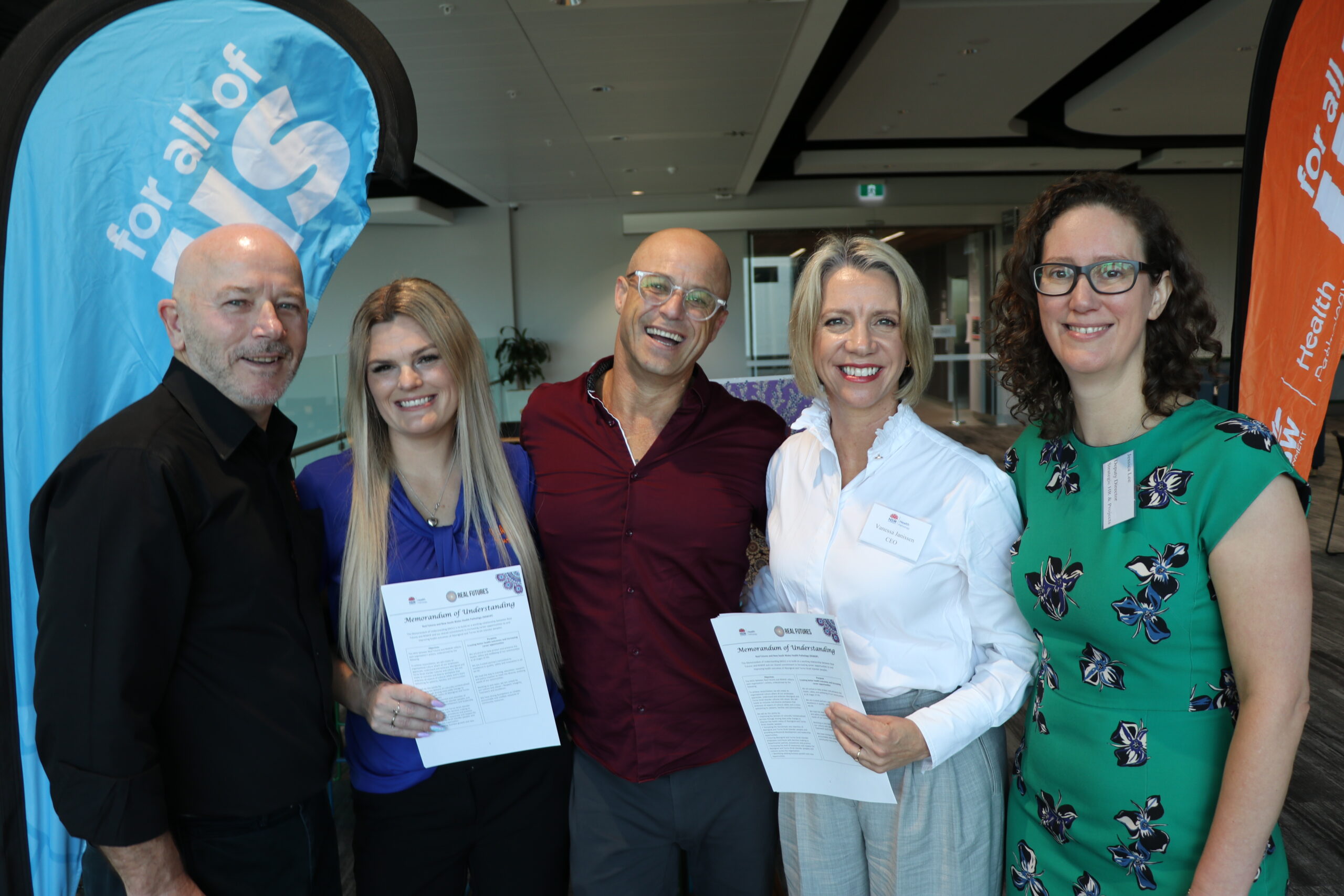The crew at NSW Health Pathology’s microbiology laboratory at Concord Hospital have been punching above their weight when it comes to sustainability in the workplace.
Ashleigh Gatley is a Technical Officer at the Microbiology and Infectious Diseases laboratory at Concord and has always been interested in sustainability.
She says she got serious about reducing the lab’s waste and boosting recycling when she was appointed as the lab’s sustainability officer in late 2022.
“NSW Health Pathology began an initiative to encourage departments to be more sustainable by allocating a sustainability officer,” Ashleigh said.
“I was surprised at how little we were recycling. It saves money in some instances and is much better for the environment, so it’s a no-brainer for me!”
Since May 2023, Ashleigh’s initiatives have diverted a huge amount of waste going to landfill.
Specimen label recycling
Previously going to clinical waste, these labels are now recycled in specially designed “confidentiality bins” to protect patient information.
This has saved approximately 23kg of waste per month going into clinical waste, as well as saving the cost of incinerating the labels.

Soft plastics
Bins labelled ‘soft plastics’ are placed in multiple locations around the laboratory and emptied daily.
The waste is collected weekly by the hospital and has saved approximately 960 litres of plastic waste from landfill each month.
Coffee grounds
Used coffee grounds from the laboratory coffee machine are collected in buckets.
Staff take home to reuse in worm farms and gardens.

Ice brick disposal
Gel ice bricks used to keep deliveries cool are safely disposed of down the sink, saving the bricks being sent to landfill.
Each pack is made of a 100% recyclable outer package and contains a non-toxic gel inside.
Other ongoing initiatives
- Switching lights off/ machines around the lab to conserve power
- Less plastic loop waste by the purchase of incinerator and using Bunsen burner alternatives
- Recycle unused paper to re-use into scrapbooks
- Keep hard ice bricks in storeroom for staff to re-use.
Ashleigh says it’s been a big team effort to get the recycling projects happening and supported by staff.
“We discuss our sustainability projects weekly at our laboratory meetings, so this is massive for keeping the conversation going. If we always have something we are working on, it encourages the lab to keep ideas flowing.
“I don’t have to work to get our team enthused about sustainability. It’s something everyone cares about and appreciates; it just takes someone who cares enough to go out of their way to make the effort and the rest will get involved on their own.”

Her next challenge for improving sustainability at the Concord laboratory?
“The next thing is to try and make the lab completely paperless, this has been a goal for the lab long before I started here, so it is a long process,” she said.
“Another big issue is recycling our hard plastics – we are currently trying to figure out a way to get this done.
“We also want to get more of the hospital involved in these projects, and more of NSW Health Pathology.”
Ashleigh has some great advice for teams hoping to make a start on being more sustainable.
“Just start small. One project at a time can make all the difference, even if it’s just starting the conversation.
“I would also suggest joining the Ministry of Health’s Net Zero group – they post about sustainability projects and related news all the time. It’s a great group to be part of if anyone is interested in sustainability.”

